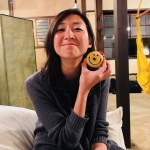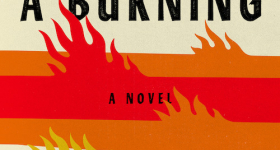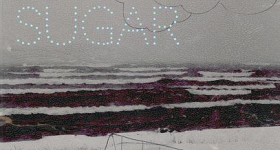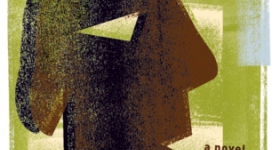Doubt drives R.O. Kwon’s intriguing new novel, The Incendiaries, and it is omnipresent from page one: an unreliable narrator, a story imbued with a sense of mystery, and distrust developing between characters as each struggles to hide or reveal their true selves throughout the book. The narrative twists and turns in uncomfortable starts and stops, relying on the reader’s own skepticism to fill in the blanks where the narrator does not — fitting, given that the premise of the story is rooted in religion and redemption.
The Incendiaries is told entirely through the eyes of Will Kendall, a college misfit who finds himself at prestigious Edwards University, where he tries at first to keep a low profile, guarding his troubled upbringing from his classmates and most especially from Phoebe Lin, his love interest who later becomes his girlfriend. The formerly religious Will turned to Christianity in junior high after his mother fell into a deep depression and initially tries to keep up appearances around Phoebe for fear that she will look down upon him for his lack of wealth and messy childhood. As the novel progresses, however, it becomes clear that Phoebe has been doing the same thing — compartmentalizing her mother’s traumatic death in order to carry on with her own life. Their parallel double lives begin to impact and intermingle with one another as they become more intimate, fall in love and start to question each other’s identity alongside their own.
The other primary character in the novel, the ever-elusive John Leal, is more illusion than reality and an embodiment of doubt as he drives a wedge between the pair from the moment he first approaches Phoebe, offering her a new lease on life (“Call me when you’re tired of wasting this life,” he tells her during their initial meeting outside a club). It turns out that John is a former North Korean detainee whose harrowing experience in a gulag led him to seek redemption as a religious zealot; the campus organization he leads, Jejah, closely resembles an extremist cult, complete with violent initiations, skewed power dynamics and an unnamable force that draws Phoebe, with ever-increasing intensity, into its grasp.
Kwon also orchestrates the novel with notable stylistic religious undertones. Her almost hypnotic narrative is free of the quotation marks that normally separate dialogue from exposition, as well as Phoebe’s lived experience from Will’s flawed memory.
“She laughed. It’s all right, she said. I ate while she peeled a white peach. The skin dropped in a single coil. She picked it up, holding it to the light. Such a rich hue, she said. It flushed pink, backlit; I nodded, then she put it down. I could tell she wished to talk, but I was lost in trills. I pushed a last peach slice in my mouth, and I went back to the piano.” (Phoebe's recollection, via Will's narration)
The resulting tone of the novel is steady, disorienting and dreamy. Its effect is potent, accenting the lyricism of each voice, which feels distinct even though both are carried through one narrative lens. Because the novel’s events are told through Will’s point of view, the reader is compelled to question the facts presented in the story and may begin to suspect that there is more happening beyond the immediate page and that another character’s point of view may belie the surface narrative.
“I stayed the night with Phoebe. In the morning, I watched as she slept, netted in white sheets, nostrils flared with each long inhale. Pearl studs glinted at slim earlobes. Minute, fish-scale veins patterned Phoebe’s eyelids in faint blue. The birthmark speckling a left clavicle, slight indents at both temples — from the start, I wanted Phoebe memorized.” (Will’s narration)
“I’m not religious, I told him. I know that, he said. I’m just hoping to be friends. This time, though, I felt alone. I said yes. It wasn't until I attended the third house meeting that I asked what had inspired him to persist so long. The first language of God is silence, he said. You’ll have to sweep the temple steps awhile before He’ll call to you. But He will. Phoebe, believe it or not, God tells me you’ll be essential to His plan. It’s the truth. In His name, yours will be magnified.” (Phoebe’s recollection, via Will’s narration)
And this is perhaps the main message that Kwon is trying to convey through her novel: that religion has a kind of unknowable power over who we are and what we value — which is both terrifying and eye-opening. Will transforms from a quiet outcast to a more outspoken, possessive boyfriend, and Phoebe evolves from a flirty, fun party girl to an obedient, fearful cult member. In their respective pursuits of losing or gaining religion, Will and Phoebe fall into a number of testy situations, including a long-distance romance, a reckoning with past relationships and an unforgivable act of violence that ultimately severs their relationship.
In The Incendiaries, Kwon explores religion in all its complexities as each character embodies a different attempt to answer the million-dollar question: What exactly is it that drives people to trust religion with blind faith? What are the life circumstances that paved the way for each of them to fall so wholly into religious fervor? And are there earthly things or beings that can even begin to fill the void where religion once was?
In the end, though both Will and Phoebe venture off in opposite directions in search of answers, they do, at least for a brief moment in their lives, heal one another:
“Until Will, I drifted; he attached me to this patch of earth,” Will imagines Phoebe saying during one Jejah confessional. “He clung all night.”
Will remembers the first time he met Phoebe: “I felt seen for what I wanted to be.”
To be grounded, to be wanted, to be seen — are these not the very things that those who seek religion pray for? Above all else, Kwon’s The Incendiaries gives the reader pause, a necessary moment to reflect and live in the doubt: What do I truly believe in? And who?










Comments